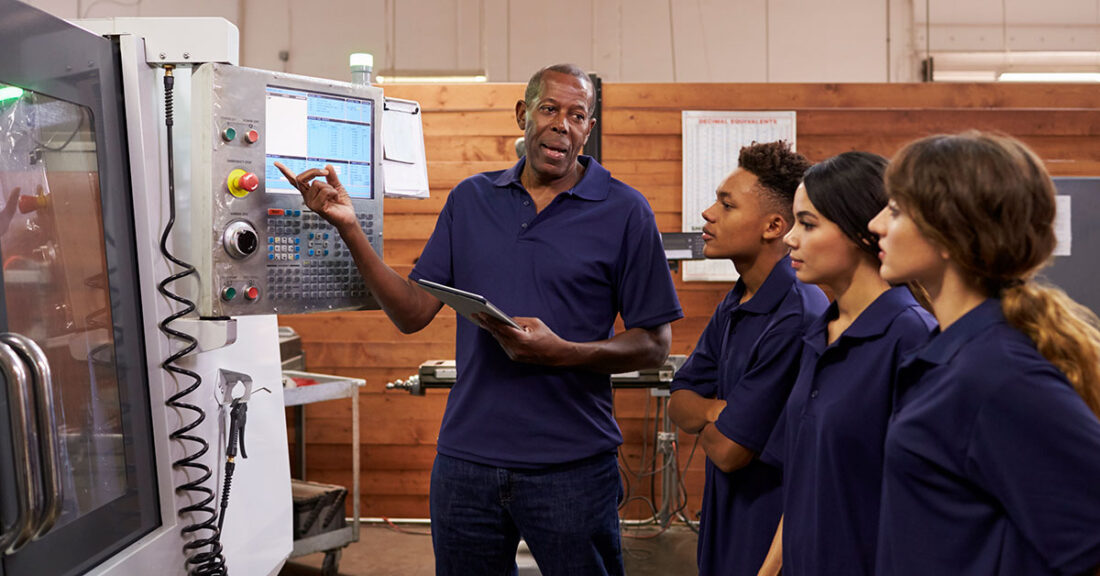A Closer Look: The Generation Work Partnership in Seattle

As part of its Generation Work™ initiative, the Annie E. Casey Foundation is investing in five partnerships — in Cleveland, Hartford, Indianapolis, Philadelphia and Seattle — to explore new ways of helping young people gain the knowledge and experience needed to secure jobs that pay family-sustaining wages.
The post below is part of a series examining the unique challenges and opportunities at each site. The series aims to explore how each partnership is working to position young people — especially youth and young adults of color and those from low-income communities — for workplace success.
This entry focuses on Casey’s partnership in Seattle, which seeks to expand job opportunities for young people from low-income and immigrant communities.
The Challenges in Seattle
Seattle’s growing employment sectors — areas like travel and trade, advanced manufacturing, aerospace, communications technology and online commerce — need qualified workers. But educational and linguistic barriers prevent many residents from joining these industries and gaining the skills and credentials needed to secure long-term careers and family-sustaining wages. This is particularly true for young adults of color and those in the region’s growing immigrant community.
The Partnership’s Approach
The Generation Work partnership in Seattle looks to develop services that help young adults of color — especially those from low-income communities and immigrant families — prepare for and access stable careers.
In its first year, the partnership supported Airport Jobs, a nonprofit that prepares individuals for careers at the Seattle-Tacoma International Airport. The partnership expanded the program’s efforts to serve younger job seekers — many of whom haven’t graduated high school or enrolled in college. As a result, Airport Jobs now offers more targeted support, including high-school completion and college-navigation services, individualized coaching and career counseling.
The partners plan to launch similar initiatives in other locations but with different workforce-development organizations and employers so that they can aid a diverse range of young people.
Key Partners
- Port Jobs supports career pathways in aviation, hospitality, transportation, distribution and logistics. It serves as the partnership’s primary convener, operating out of the Port of Seattle/Seattle-Tacoma International Airport.
- South Seattle College’s Georgetown Campus offers apprenticeships and programming for careers in the manufacturing industry.
- Aerospace Joint Apprenticeship Committee provides apprenticeships for the aerospace and advanced manufacturing industries.
- Apprenticeship & Nontraditional Employment for Women gives pre-apprenticeship training and support for individuals pursuing skilled construction trades.
- Workforce Development Council of Seattle – King County serves as the local workforce investment board and funders’ collaborative.
- King County’s Education and Employment Resources leads youth-led outreach and recruitment to education and employment programs.
- Seattle Education Access helps young adults navigate college and access postsecondary training.
- Community Center for Education Results acts as the backbone organization for the Road Map Project — a cradle-to-career collective impact initiative — and serves as the local lead for the Aspen Institute’s Opportunity Youth Incentive Fund.
- Puget Sound Educational Service District oversees 35 school districts in Washington and supports high school reengagement and completion efforts.
- Office of Superintendent of Public Instruction manages Washington’s K‑12 system, including Open Doors Youth Reengagement, which serves students between the ages of 16 and 21.
- Washington State Board for Community and Technical Colleges runs Washington State’s system of 34 public community and technical colleges.
Measuring Success
Success, for the partners in Seattle, is about helping young adults of color and those from low-income, immigrant and refugee families gain the skills necessary to succeed in the workplace and obtain well-paying careers in growing industries.
This post is related to:
- Child Poverty
- Education
- Nonprofits
- Positive Youth Development
- Racial Equity and Inclusion
- Workforce Development
- Employment Programs for Young Adults






